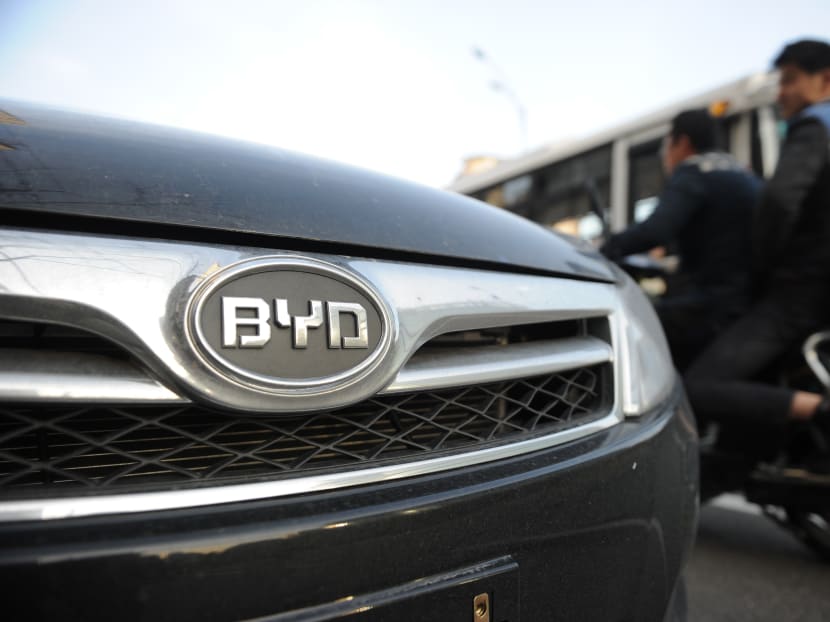'China’s Tesla', BYD, has electric dreams
BEIJING — In contrast to the usual pattern of technological advance, Chinese car firm BYD — for Build Your Dreams — has led the way in electric vehicles but now faces increasing competition from Western manufacturers.

Motorists pass a BYD car on a street in Shanghai on March 25, 2013. AFP file photo
BEIJING — In contrast to the usual pattern of technological advance, Chinese car firm BYD — for Build Your Dreams — has led the way in electric vehicles but now faces increasing competition from Western manufacturers.
BYD has nothing like the global profile of Tesla but sold its first hybrid in 2008, long before the US firm went into production.
The same year, US billionaire Warren Buffett acquired a 10 per cent stake in the company. Deliveries of its first all-electric car, the e6, began in 2011, a year ahead of the first sales of Tesla’s Model S.
While Tesla founder Elon Musk might be compared to a “sprinter”, BYD’s president Wang Chuanfu “is more of a marathon runner”, the company’s senior vice president Stella Li told Bloomberg News earlier this month, slowly but surely building its brand recognition and sales volume.
In 2015, BYD sold around 58,000 electric and hybrid vehicles, doubling year-on-year, according to its annual report, which did not differentiate between the categories. It hopes to sell three times as many this year.
In comparison, all-electric Tesla sold 50,580 cars globally in 2015.
BYD, which has its origins as a battery manufacturer, is looking to diversify its offerings across price ranges, partnering with German automaker Daimler to create Denza, a high-end brand that seeks to compete for Tesla’s well-heeled clientele.
At the other end of the range, it was the first company in the world to create mass-produced, fully electric buses, and has sold them to the US, Britain, India and Brazil, among others.
Chinese new energy vehicle sales — a category that brings together both all-electric and hybrids — quadrupled last year on the back of government subsidies, but still made up less than one percent of the world’s biggest auto market.
But BYD believes such incentives will become increasingly unnecessary as the sector becomes “driven more by the industry’s fundamentals than government policies”, it said in its annual report, which predicted “a phase of acceleration in full force”.
Even so more than 80 per cent of BYD’s production remains conventional petrol models, and last week it unveiled a new petrol-run SUV to great fanfare: the “Yuan”, named to evoke the grandeur of the Mongol dynasty that ruled China for nearly a century.
Competition is becoming fierce as other automakers such as Ford, BMW and Renault enter the electric car field.
“It doesn’t matter that you were the pioneer,” said Mr Namrita Chow, analyst at industry data firm IHS Automotive. “To stay at the top of your game and stay in the spotlight in China, you must have a constant stream of new, technically advanced products coming to market.” AFP





